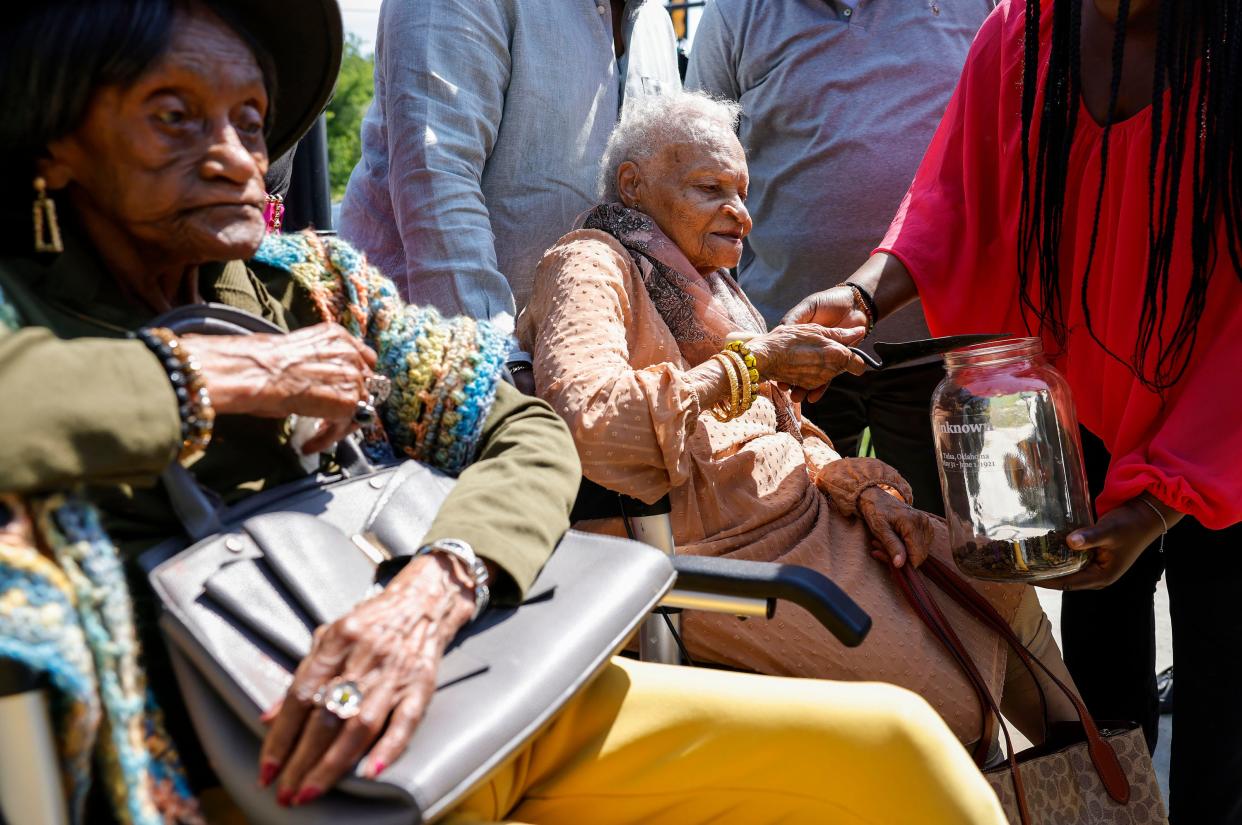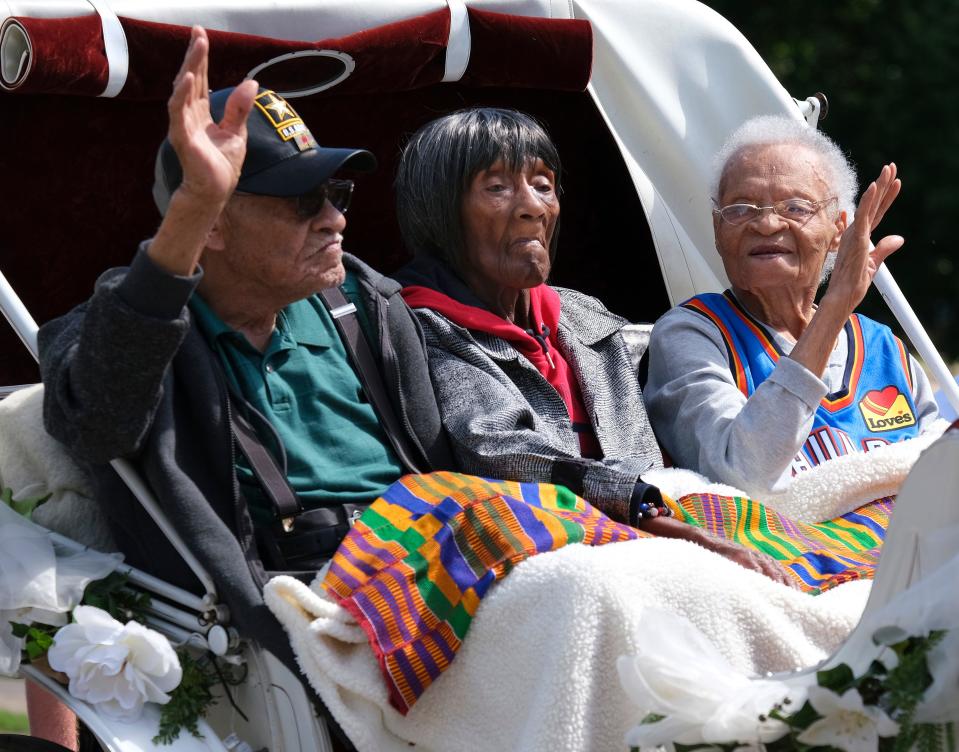Tulsa Race Massacre survivors' lawsuit dismissed, ending years-long quest for reparations

The judge in a case that sought financial restitution for the three remaining survivors of the Tulsa Race Massacre dismissed the case with prejudice Friday, effectively ending any further attempts by survivors' attorneys to seek reparations.
The lawsuit, filed against the City of Tulsa, Tulsa Regional Chamber, the Tulsa County Commissioners, Tulsa County Sheriff Vic Regalado and the Oklahoma Military Department, stated that the 1921 Tulsa Race Massacre represented an "ongoing public nuisance," to survivors Viola Fletcher, Lessie Benningfield Randle and Hughes Van Ellis, Sr.
More: Tulsa Race Massacre timeline
The survivors, ranging in age from 102 to 109 years old, lived through what is considered one of the worst incidents of domestic terrorism in American history. Between May 31, 1921, and June 1, 1921, mobs of angry white men stormed the well-established and prosperous Black community of Greenwood, also known as Black Wall Street, in Tulsa. More than 1,000 homes were burned and businesses left in ruins as 35 city blocks were destroyed, and, though just 39 deaths were listed in official records, estimates now put the number at closer to 300.
In her order, Judge Caroline Wall wrote the motion to dismiss "should and shall be granted upon the grounds set forth in the defendants' briefs." The order also said the court finds further amendment futile, and "respectfully finds and orders the plaintiffs' second amended petition should and shall be dismissed with prejudice," according to court documents retrieved from the Oklahoma State Courts Network website.

When a case is dismissed with prejudice, it acts as a final and permanent dismissal, meaning the case cannot be refiled.
More: Oklahoma schools should teach Tulsa Race Massacre as a 'racist' event, state superintendent says
The suit alleged that the massacre, perpetrated by members of the Tulsa Police, Sheriff's department, National Guard, and city and county leaders, among others, had rendered them insecure in their lives and the use of their real and personal property, and "annoyed, injured and endangered the community."
The suit also said that a lack of investment in the Greenwood District and other historically and predominantly Black areas of Tulsa by city and county officials after the massacre had exacerbated the damage and suffering, making the problem even worse when, "in 2016, the Defendants began enriching themselves by promoting the site of the Massacre as a tourist attraction."
More: 101 years after Tulsa Race Massacre, crowds flock to Black Wall Street history center
The judge initially ruled on the motion to dismiss in August, but plaintiffs filed an amended petition, which meant defendants were required to respond.
The judge's order Friday ultimately reverted the suit back to the August decision, first stating that the plaintiffs' claims of the defendants creating an ongoing public nuisance should be dismissed with prejudice because they requested "relief that violates the separation of powers provided by the Constitution of the State of Oklahoma," and that the survivors' attorneys failed to identify a legally cognizable abatement remedy, and that the court was not willing to engage in the management of public policy matters that should be dealt with by legislative and executive branches.
Friday's ruling effectively ends a century long legal battle by survivors. The suit against the city came after numerous previous legal attempts at reparations failed.
Because the massacre was originally deemed a riot, the Oklahoma Supreme Court immunized insurance companies from liability in 1926, meaning none of the Black home or business owners could make claims for property loss. From 1997 to 2001, a commission established by the Oklahoma Legislature studied the incident before recommending reparations, but federal lawsuit filed in April 2003 was dismissed less than a year later because the statute of limitations had expired.
This article originally appeared on Oklahoman: Suit seeking restitution for Tulsa Race Massacre survivors is dismissed

